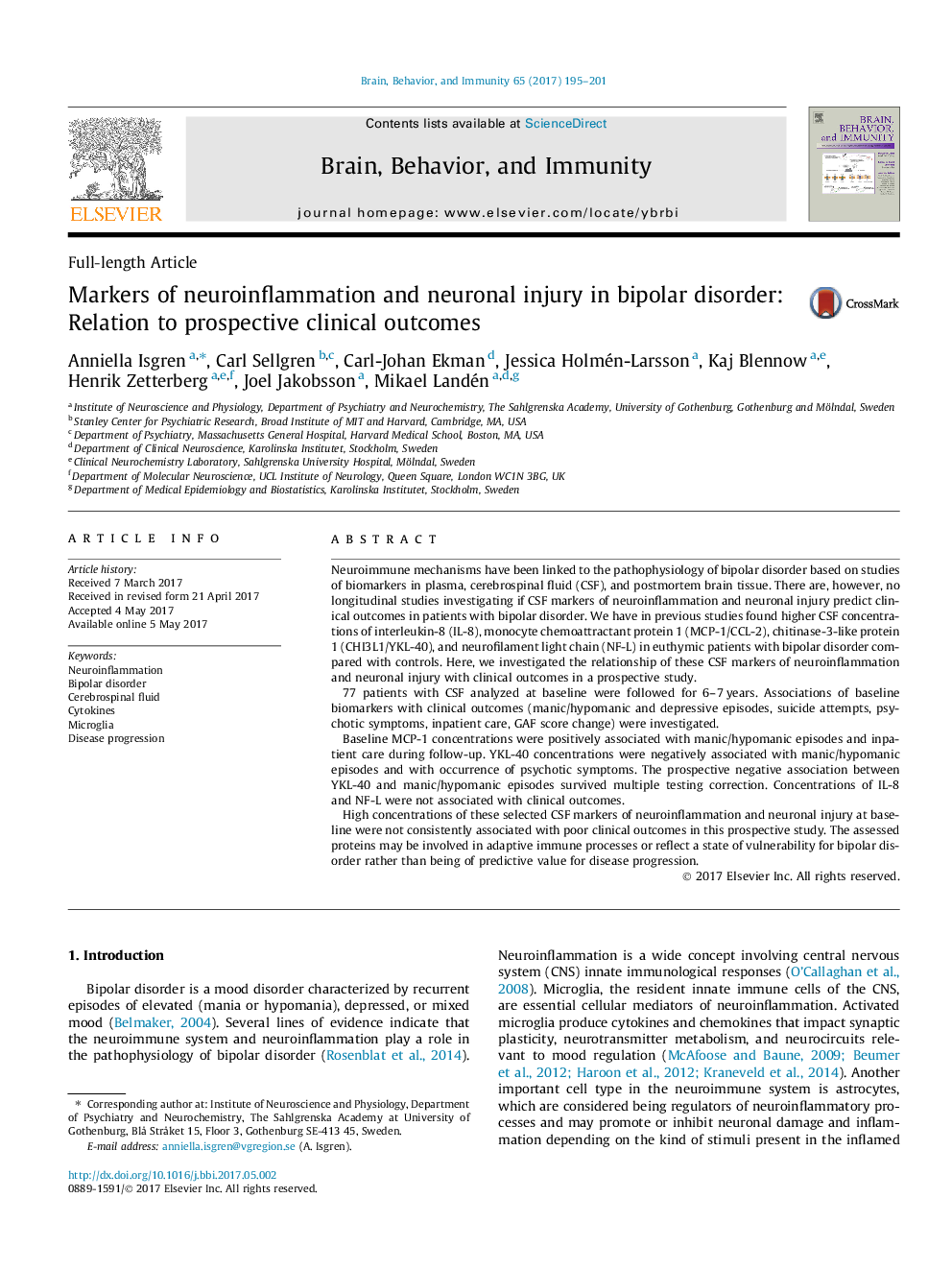| کد مقاله | کد نشریه | سال انتشار | مقاله انگلیسی | نسخه تمام متن |
|---|---|---|---|---|
| 5040593 | 1473902 | 2017 | 7 صفحه PDF | دانلود رایگان |
- Low CSF levels of YKL-40 predicted mania/hypomania.
- CSF levels of IL-8 and NF-L did not predict long-term clinical outcomes.
- Assessed markers of neuroinflammation did not consistently predict poor clinical outcomes.
Neuroimmune mechanisms have been linked to the pathophysiology of bipolar disorder based on studies of biomarkers in plasma, cerebrospinal fluid (CSF), and postmortem brain tissue. There are, however, no longitudinal studies investigating if CSF markers of neuroinflammation and neuronal injury predict clinical outcomes in patients with bipolar disorder. We have in previous studies found higher CSF concentrations of interleukin-8 (IL-8), monocyte chemoattractant protein 1 (MCP-1/CCL-2), chitinase-3-like protein 1 (CHI3L1/YKL-40), and neurofilament light chain (NF-L) in euthymic patients with bipolar disorder compared with controls. Here, we investigated the relationship of these CSF markers of neuroinflammation and neuronal injury with clinical outcomes in a prospective study.77 patients with CSF analyzed at baseline were followed for 6-7Â years. Associations of baseline biomarkers with clinical outcomes (manic/hypomanic and depressive episodes, suicide attempts, psychotic symptoms, inpatient care, GAF score change) were investigated.Baseline MCP-1 concentrations were positively associated with manic/hypomanic episodes and inpatient care during follow-up. YKL-40 concentrations were negatively associated with manic/hypomanic episodes and with occurrence of psychotic symptoms. The prospective negative association between YKL-40 and manic/hypomanic episodes survived multiple testing correction. Concentrations of IL-8 and NF-L were not associated with clinical outcomes.High concentrations of these selected CSF markers of neuroinflammation and neuronal injury at baseline were not consistently associated with poor clinical outcomes in this prospective study. The assessed proteins may be involved in adaptive immune processes or reflect a state of vulnerability for bipolar disorder rather than being of predictive value for disease progression.
Journal: Brain, Behavior, and Immunity - Volume 65, October 2017, Pages 195-201
